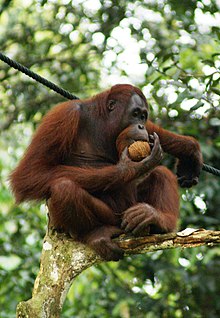**Group 1: Frugivore Seed Dispersal**
– Seed dispersal allows plants’ progeny to move away from parents.
– Evolution of fleshy fruits entices animals for seed dispersal.
– Mammals, birds, tortoises, lizards, amphibians, and fish disperse seeds.
– Cassowaries are keystone species for spreading fruit through digestion.
– Tropical forests have more frugivore seed dispersers than temperate zones.
**Group 2: Ecological Significance of Frugivore Seed Dispersal**
– Frugivore seed dispersal is common in many ecosystems.
– Lack of specialization due to fruit availability variations.
– Different seed dispersers disperse seeds to various habitats and distances.
– Single frugivorous bird species may disperse fruits from several plant species.
– Few species of bird may disperse seeds of one plant species.
**Group 3: Plant and Frugivore Adaptations**
– Plant adaptations to attract dispersers include bright colors and smells.
– Frugivore adaptations for fruit consumption involve specialized digestive systems.
– Plants invest energy into fruit production to encourage mutualist frugivores.
– Frugivores have short gut-retention times for efficient seed dispersal.
– Some frugivores can alter intestinal enzyme composition.
**Group 4: Conservation of Frugivores and Seed Dispersal**
– Loss of frugivores can lead to changes in plant communities and local plant species loss.
– Large frugivores, like monkeys, play a unique role in long-distance seed dispersal.
– Plant species with animal-dispersed seeds may be less vulnerable to habitat fragmentation.
– Anthropogenic habitat changes can negatively impact some frugivore species but benefit others.
– Frugivore seed dispersal is crucial for plant species dispersal.
**Group 5: Research, Studies, and Threats to Frugivores**
– Various research studies focus on frugivore-plant interactions and seed dispersal.
– Understanding frugivore behavior aids in conservation efforts.
– Threats to frugivores include deforestation, habitat loss, climate change, hunting, and pollution.
– Conservation efforts include protected areas, reforestation projects, education programs, sustainable practices, and research initiatives.
– Seed dispersal by animals is a key ecological process studied by researchers.
A frugivore (/fruːdʒɪvɔːr/) is an animal that thrives mostly on raw fruits or succulent fruit-like produce of plants such as roots, shoots, nuts and seeds. Approximately 20% of mammalian herbivores eat fruit. Frugivores are highly dependent on the abundance and nutritional composition of fruits. Frugivores can benefit or hinder fruit-producing plants by either dispersing or destroying their seeds through digestion. When both the fruit-producing plant and the frugivore benefit by fruit-eating behavior the interaction is a form of mutualism.

